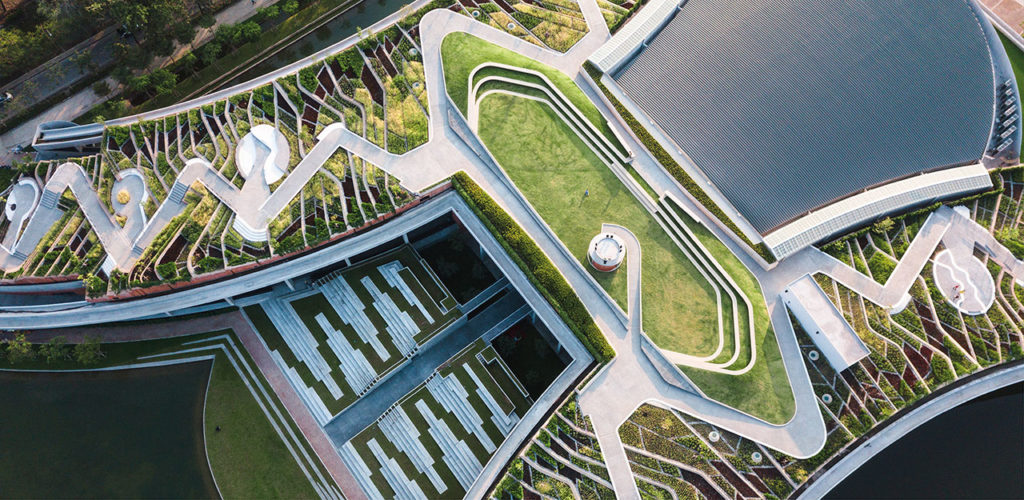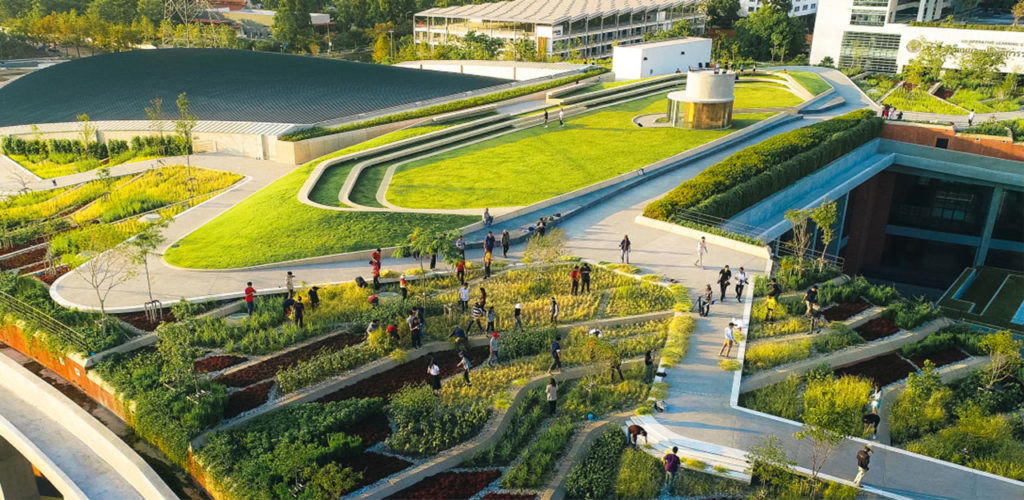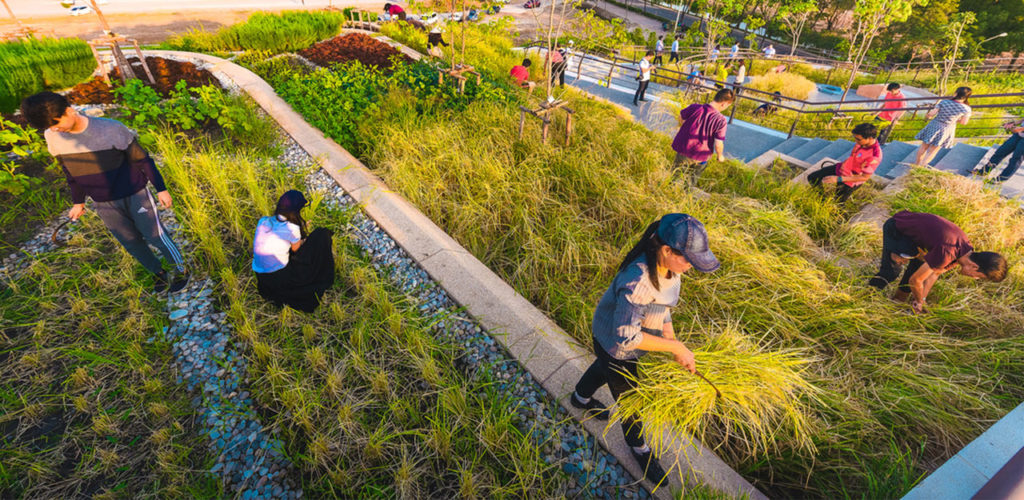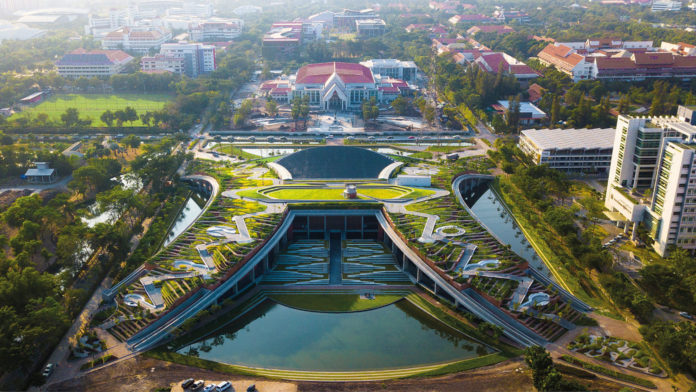Amidst the climate crisis, food and water scarcity pose tremendous threats to human civilization. To prioritize global food security, and the health of our people and the environment, cities must utilize abundant agrarian societies or spaces to efficiently and sustainably produce food.
Bangkok-based landscape architecture firm LANDPROCESS has helped Thammasat University envision and implement a climate solution with Asia’s largest organic rooftop farm – Thammasat Urban Rooftop Farm (TURF). Repurposing 236,806 sq. ft. of wasted rooftop space, the project is realized in the Pathum Thani provinces of Thailand.

Designed in the shape of the letter “H”, it has an elevation that resembles a large mountain, with a huge green garden space covering the upper part. The project was inspired by traditional Thai rice fields. Integrating landscape architecture with the ingenuity of traditional rice terraces, TURF incorporates sustainable food production, renewable energy, organic waste, water management, and public space.
There is a water storage ponds, capable of holding up to 3,095,570 gallons of water once combined, to support rainwater to be used in the dry season. The roof is equipped with solar panels, capable of producing up to 500,000 watts per hour to irrigate the urban farm and power the building beneath it.

TURF’s landscape architect integrated the earthwork of rice terraces with modern green roof technology. The cascading rooftop can slow down runoff up to 20 times more efficiently than a conventional concrete rooftop. Besides, TURF maximizes the terrain to create multi-functional public spaces and a large amphitheater with a 360-degree panoramic view of Bangkok.
The rooftop farm will be used for planting rice, together with herbs, vegetables, and other native species. According to LANDPROCESS, the project produces up to 20 tons (80,000 meals) of organic food each year to be served on the Thammasat campus. The campus canteen then helps make compost from food waste to fertilize crops for the next harvest.

The urban form also has the same functions as a green roof – helping to improve the city’s air quality, reducing its temperature, and absorbing rainwater, in addition to restoring local biodiversity by bringing back pollinating birds and insects.
TURF is a realistic but hopeful solution, putting urban dwellers back in tune with agricultural practices. Lessons on Thai agriculture, landscape, and native soil are embedded into the rooftop farm, educating future leaders to adapt and embrace climate challenges by building sustainable cities for generations to come.
